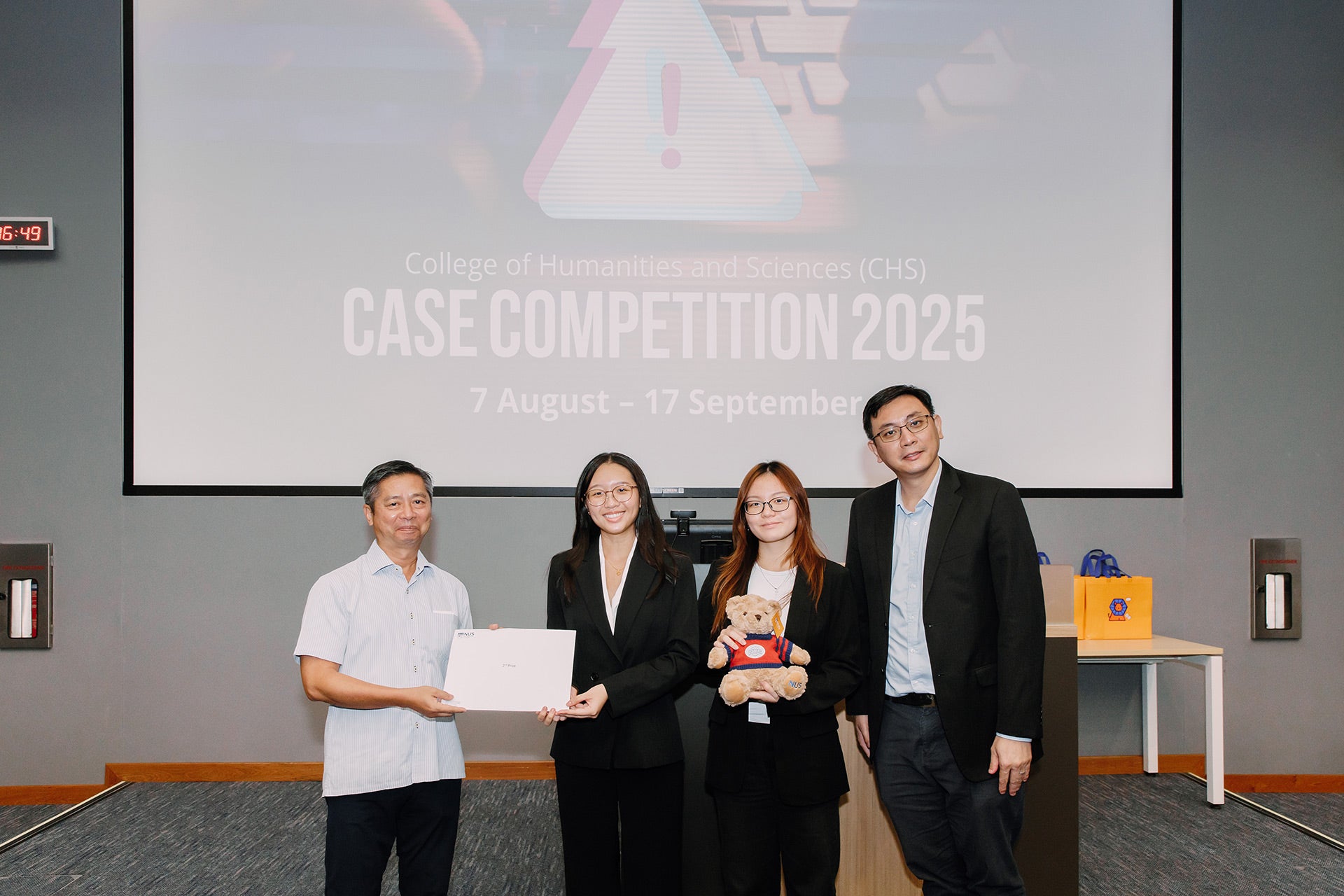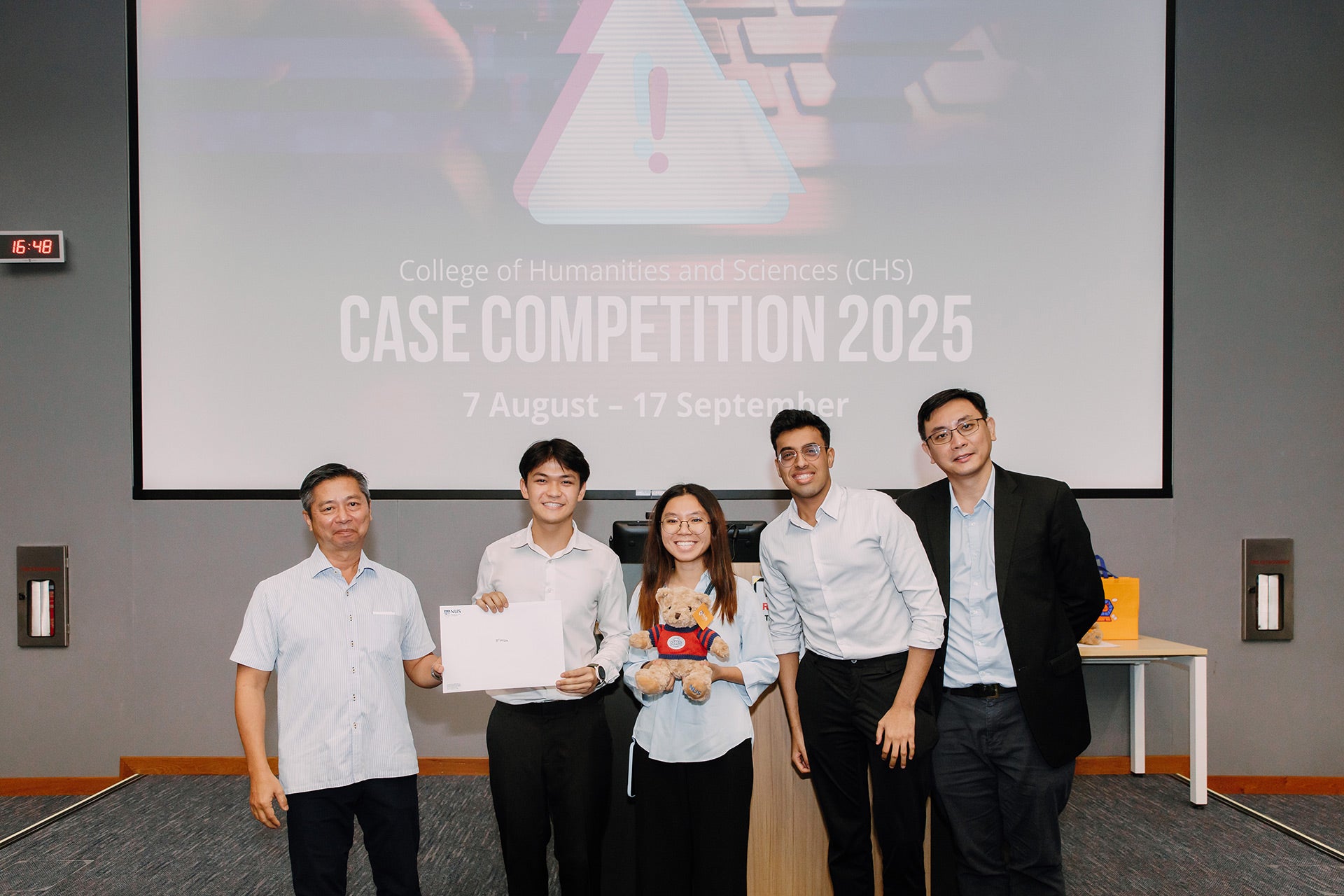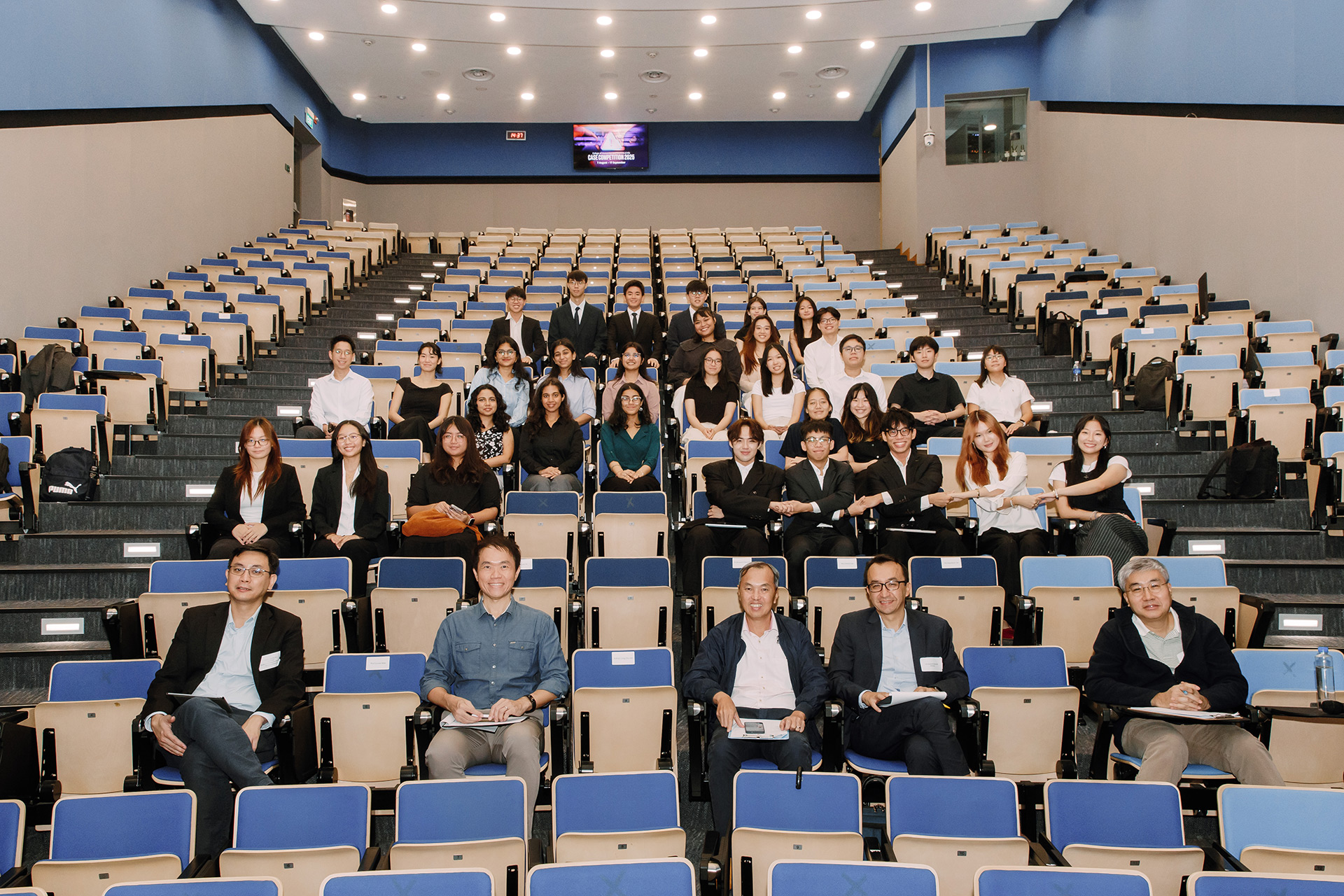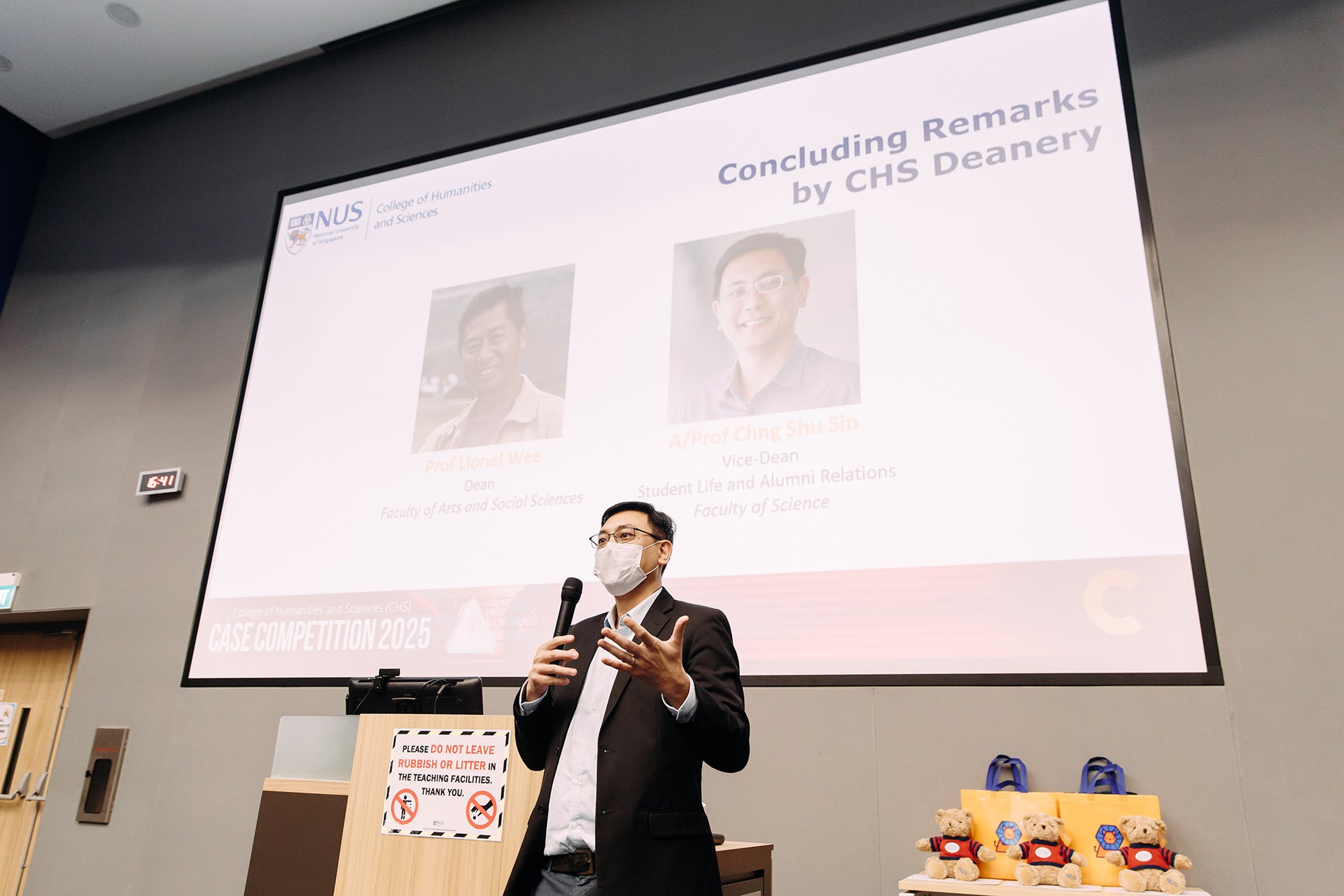Next-gen defenders: Students take on the challenge of tackling scam threats
October 8, 2025

Your phone rings, the caller ID displays what looks like an official government hotline. The voice on the other end is authoritative, warning you of an urgent problem with your bank account. Before long, you are instructed to transfer money to “secure” your funds. For many victims, this scenario ends with devastating financial losses, emotional distress and erosion of trust in digital and financial systems.
At a time when scams are growing in scale and sophistication, a young generation of problem-solvers is stepping up to confront this urgent issue. The interdisciplinary NUS CHS Case Competition 2025, which drew 52 teams across NUS, challenged participants to develop original solutions to protect and strengthen resilience against this societal scourge.

The winning team, The Trustables, comprising students from the Faculties of Science (FoS), Arts and Social Sciences (FASS) and the School of Computing (SoC), impressed with their two-prong approach to strengthen defences against government impersonation scams. The first prong introduces verified badges for calls from government and official organisations, helping people distinguish legitimate calls from scams, while the second prong enhances the existing Scam Shield app with interactive games and reward points.
Team lead Glenn Ang, a student from the Cross Disciplinary Programme in Data Science and Economics, says, “Combining data science, economics and computer science allowed us to design a solution that was both technically feasible and socially impactful. This experience reinforced how powerful scientific thinking and data-driven approaches can be in solving real-world problems.”

Coming in second place, We Got Scammed - comprising students from FoS and School of Business – observed that peer-to-peer transactions are especially vulnerable, with no reliable verification mechanisms to distinguish genuine users from scammers.
They set out to address this gap through three complementary strategies: integrating their solutions with existing safeguards, enhancing detection using real-time tools and educating the public through interactive simulations of a scam journey that allow participants to experience how scams operate, recognise red flags and learn how to protect themselves. In doing so, it is their hope that their solution protects vulnerable groups and creates a safer digital ecosystem.

In third place, ScamBusters - comprising students from FoS and SoC – introduced a family-assisted authorisation system designed to protect seniors from high-risk transactions. By notifying trusted family members when large or suspicious transactions are initiated, their solution leverages social support to add an additional safeguard against scams targeting older individuals.

To prepare, participants attended workshops at SoC, FASS and the Centre for English Language Communication organised workshops to explore topics such as computer security, the psychology of scams and persuasive case writing techniques.

Prof Lionel Wee, Dean, Faculty of Arts and Social Sciences, says, “From 52 impressive submissions, a select few teams advanced to the finals. Yet, all participants gained something invaluable: the chance to see their ideas potentially shape Singapore’s efforts against scams, and to develop essential skills in communication, collaboration and problem-solving - skills that will serve them throughout their careers."

Assoc Prof Chng Shu Sin, Vice Dean (Student Life and Alumni Relations), adds, “As I sat there listening to the finalist cases being presented, I was very impressed by the many good and innovative ideas that were put forth. The CHS Case Competition offers a great platform for students to work together to bring interdisciplinary solutions to challenging problems of the day, and to hone their communication skills. I encourage all students to consider taking part in future iterations of the competition to gain valuable experience.”

The NUS CHS Case Competition 2025 was organised in partnership with the Home Team Science & Technology Agency (HTX), the Singapore Police Force (SPF) and Advancy. The preliminary judges were from NUS Business School, FoS, FASS and SoC.

This is the fifth edition of the competition, a yearly event for students to assemble teams with diverse expertise and apply curriculum learning to formulate interdisciplinary solutions to real-world issues.
Congratulations to the winning teams, whose proposals showcase how creativity, collaboration across different disciplines and critical thinking come together to tackle one of today’s most urgent issues

